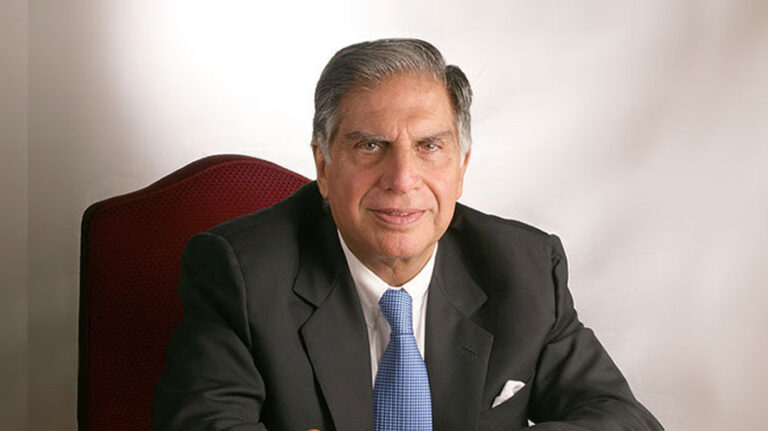Ratan Tata was revered as one of India’s most influential business leaders, known for his transformative leadership style and unwavering commitment to ethics, innovation, and philanthropy. From taking Tata Motors global to redefining corporate social responsibility in India, Ratan Tata’s career offers invaluable lessons for modern leaders navigating today’s fast-paced, complex business environment. Here, we explore the key lessons from Ratan Tata’s legacy that today’s leaders can learn from and apply.
1. Lead with Integrity and Ethical Values
Throughout his career, Ratan Tata emphasized the importance of integrity in business. He believed in conducting business in a transparent, ethical manner, which has been fundamental to the trust and reputation the Tata Group enjoys today. Leaders who prioritize ethics and values over short-term gains are more likely to build lasting, respected organizations.
Lesson: Always choose ethics over profit. In the long run, integrity fosters trust, loyalty, and sustainable success.
2. Embrace Resilience and Adaptability
Ratan Tata’s tenure was marked by significant challenges, including economic downturns and the global recession of 2008. However, he consistently led the Tata Group through these crises by adapting to changing circumstances and remaining resilient. This adaptability enabled the Group to thrive in diverse sectors, from automotive to IT services.
Lesson: Embrace change, stay resilient, and view challenges as opportunities for growth and transformation.
3. Cultivate a Long-Term Vision
Tata always focused on the long-term impact of his decisions, whether it was expanding Tata Motors into international markets or diversifying into new industries. His acquisitions of Jaguar Land Rover and Corus Steel were not just strategic but also transformative for the Tata Group, propelling it onto the global stage.
Lesson: Adopt a long-term vision for your organization. Focus on sustainable growth and make strategic investments that benefit both the company and its stakeholders.
4. Prioritize Social Responsibility and Give Back to the Community
Ratan Tata is known for his philanthropic endeavors, which have had a profound impact on education, healthcare, and rural development in India. He believed that businesses have a responsibility to contribute to the well-being of society, and his leadership reflected this commitment through the work of Tata Trusts and various CSR initiatives.
Lesson: Embrace corporate social responsibility. Contributing to the community not only enhances brand reputation but also fosters goodwill and loyalty among stakeholders.
5. Foster Innovation and Encourage Entrepreneurship
Tata encouraged a culture of innovation within the Tata Group, empowering employees to think creatively and take risks. This openness to innovation was instrumental in the development of pioneering projects, such as the Tata Nano, and the rapid growth of Tata Consultancy Services.
Lesson: Encourage innovation within your organization. Create a supportive environment where employees feel empowered to experiment, learn, and innovate.
6. Stay Humble and Lead by Example
Despite his success, Ratan Tata is known for his humility and down-to-earth nature. He never shied away from interacting with employees at all levels and was known to lead by example. This humility made him a respected and admired leader, both within and outside the Tata Group.
Lesson: Stay grounded, regardless of your success. Leading by example and showing humility can earn you respect and inspire those around you.
7. Empower Your Team and Trust Them
Tata believed in trusting his team and giving them the autonomy to make decisions. He understood that great leadership is not about micromanaging but about empowering others to take ownership of their work and responsibilities.
Lesson: Trust your team and empower them to succeed. Foster a culture of ownership and accountability to motivate your team and drive results.
8. Build an Inclusive and Collaborative Culture
Ratan Tata was known for promoting inclusivity within the Tata Group. He encouraged collaboration and unity across different business units, creating a cohesive and supportive organizational culture that enabled growth and innovation.
Lesson: Cultivate an inclusive and collaborative work environment. When people feel valued and included, they are more likely to contribute meaningfully and stay committed to the organization’s goals.
9. Never Stop Learning and Evolving
Even after retiring, Ratan Tata continues to explore new interests and support emerging entrepreneurs through investments in startups. His curiosity and willingness to embrace new ideas have kept him relevant and influential in the business world.
Lesson: Embrace lifelong learning and stay curious. Adaptability and a thirst for knowledge will keep you agile and prepared for the future.
Conclusion
Ratan Tata’s leadership legacy is a testament to the power of ethical decision-making, resilience, and a commitment to social responsibility. In an era where businesses often prioritize profit over people, Tata’s approach offers a refreshing and impactful alternative. His leadership lessons are as relevant today as they were during his tenure, providing a blueprint for current and future leaders to build organizations that are not only successful but also contribute positively to society. By emulating Tata’s principles, today’s leaders can leave an indelible mark on their industries and the world.










